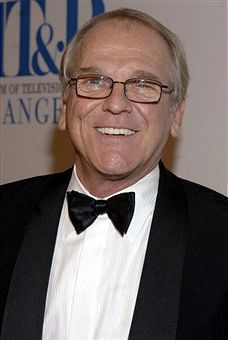 The West Wing has an amazing hold over Fleet Street. The TV series has not only taught a
generation of British reporters about US politics but even influenced the way that they see the workings of Westminster.
The West Wing has an amazing hold over Fleet Street. The TV series has not only taught a
generation of British reporters about US politics but even influenced the way that they see the workings of Westminster.
Every time centre-right writers think David Cameron is seen as having made a mistake – mistreated his back-benchers, hired a personal photographer or made a foreign policy gaffe – they trot out the same refrain: No 10 needs a powerful Leo McGarry-type chief of staff who can bring the various parts of the operation together from Steve Hilton’s work to Andy Coulson’ operation. An enforcer, a puller-togetherer.
I have three arguments against a British Leo McGarry. The British system, with its permanent Civil Service, is very different than the politically-appointed US bureaucracy. A No 10 chief of staff will never take on the all-powerful role of a White House equivalent (which, as Rahm Emannuel’s case shows, is not always a positive)
I have long been in favour of more political appointments and my recent time in government has only convinced me further. The UK needs fewer Ministers, more Special Advisers and more Parliamentary power. But that requires thorough change not just exceptions at the top in No 10.
Second, the current system works for the Prime Minister. He clearly feels comfortable with the people he has chosen and the creative tensions that exist among them. Having worked closely with two top-level politicians – Paddy Ashdown and Andrew Mitchell – I’m convinced that a key element of success is for these “principals” to trust and feel relaxed with their immediate office staff.
I never laughed as much as when I worked for Lord Ashdown when he was UN chief in Bosnia. His was a fun, relaxed but very professional operation. Whatever outsiders might think, the Prime Minister clearly likes the set-up he has created. It allows him the comfort to act decisively. Unlike Gordon Brown the Prime Minister keeps the people he trusts, the atmosphere he likes – and does not experiment with senior appointments to his team.
A third counter-argument is about substance. The No 10 system has in fact been very successful. There were two overwhelming dangers when David Cameron entered office: that the Lib Dems would walk out of the Coalition and that the Tories and the Civil Service would clash. That neither has happened and everyone has docked so smoothly is down to the professionalism of the operation. The existing problems pale in comparison with the ones that could have befallen the government.
In a West Wing scene, President Bartlet asks a would-be presidential contender if he has a best friend, if that friend is smarter than him, and if he could trust that friend with his life. The man says yes on all counts, so President Bartlet simply says: “That’s your chief of staff”. I suspect that David Cameron has his own set of demands for his key people. They may even be the same ones as President Bartlet’s. Either way, trying to re-engineer the workings of the PM’s office from outside and based on a TV character misses the real requirements – and successes – of Team Cameron.






Comments